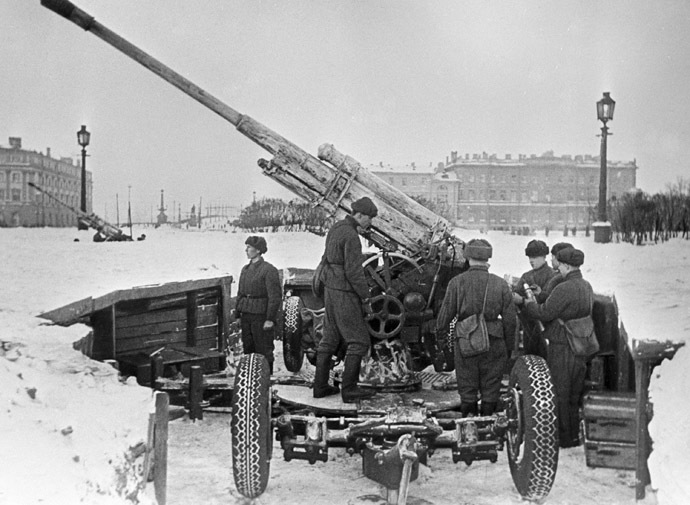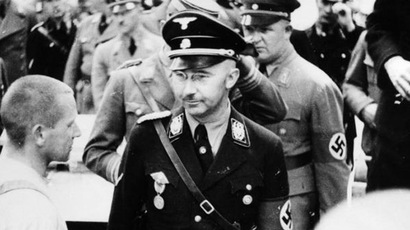Appalling truth of Leningrad siege: 95yo Russian writer gives powerful speech at Bundestag
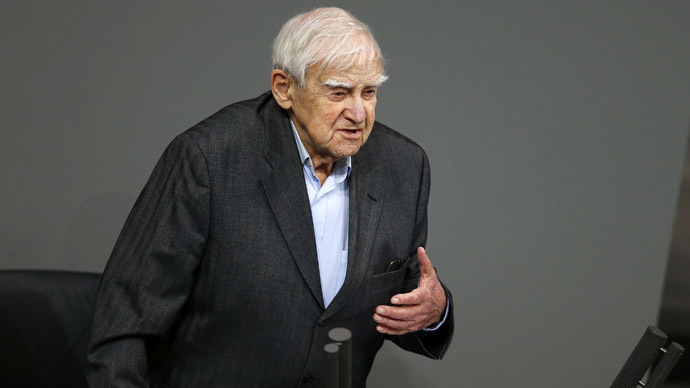
The speech by a 95-year-old witness of the Nazis' WWII Siege of Leningrad, Russian writer Daniil Granin, stirred German MPs to the core. Some, in tears, said it had made them ponder the need to reassess the entire history of the war.
Granin's account of the devastating siege, during which up to 1 1/2 million people perished, most from starvation, was broadcast by all major German TV channels. The author of the 'Book of the Blockade' addressed the German parliament in Berlin, with Chancellor Angela Merkel among those present, on International Holocaust Remembrance Day. The video of his speech got over 80,000 views on YouTube in a single day.
The nearly 2 1/2-year siege of Leningrad is perceived as one of the darkest moments in Russian history. It began in September 1941, three months after Nazi Germany launched its Operation Barbarossa invasion against the Soviet Union.
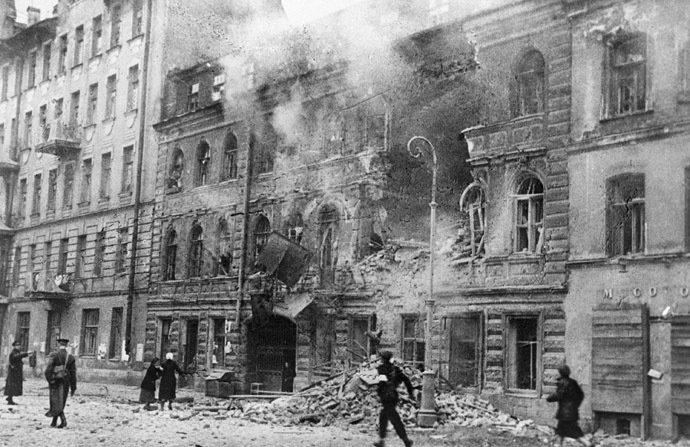
“The blockade was sudden and unexpected, as much as the war itself was unexpected for the country. There were no reserves of fuel, no food... Then one after another catastrophic event started to occur, power supplies were stopped, there was no water, no sewerage system operating, no central heating in place..."
Granin was 22 when he volunteered to join the Red Army and became a tank officer. He said he enrolled “probably out of pure boyish lust for romance.”
“But the next few days of the war sobered me, like most of my friends. We were bombed out just when our train arrived on the front line, and since then we experienced one defeat after another, so we fled, retreated, then fled again... Finally, somewhere in mid-September, my regiment was forced to surrender the town of Pushkin, the front collapsed and the blockade began. The blockade, which lasted 900 days..."
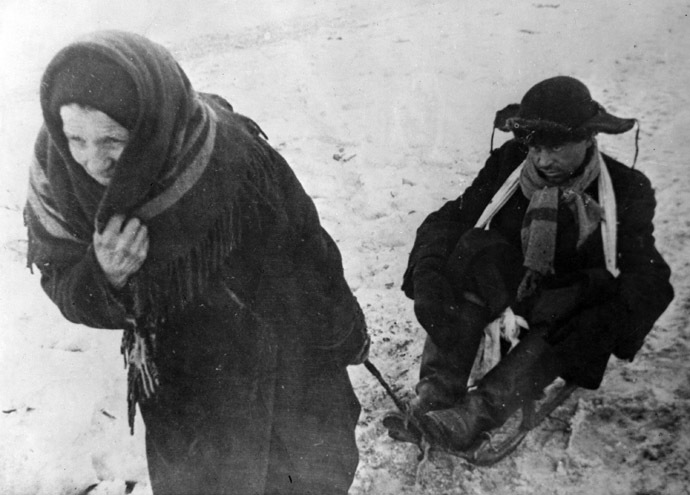
Hitler planned to take Leningrad by forcing people to die of hunger, with the Nazis assuming that starvation would prove to be the most effective weapon.
"Hitler ordered [his troops] not to enter the city to avoid losses in street battles, where tanks were unable to take part. German troops, in fact, quite comfortably and easily, expected that the coming famine and cold would force the city to surrender," Granin said.
"In reality, the war stopped being a war. From the enemy’s side, it gradually turned into an expectation of surrender.”
Indeed, with the heating switched off during the bitterly cold winter at the beginning of the siege, from 1941 to 1942, thousands of residents of the former imperial capital died of hunger and exhaustion each day when rations fell to just 125 grams of bread per person.
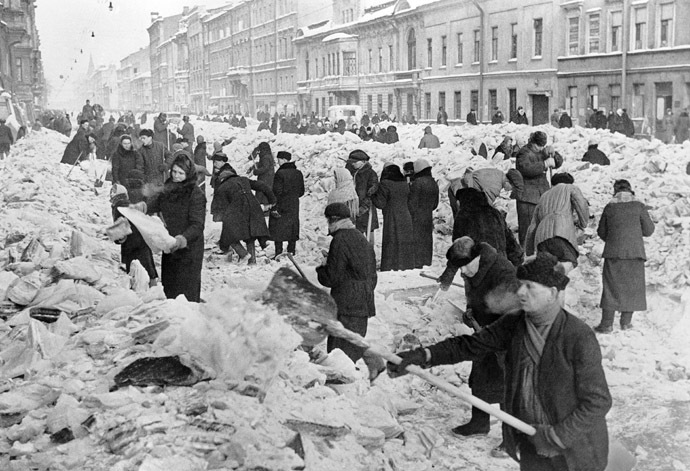
People were forced to eat rats, cats, earth and glue. Some resorted to cannibalism, Granin told the parliament. He said he met a mother who fed her 12-year-old daughter with the remains of her dead three-year-old daughter, to save at least one child. The writer recalled how dead bodies littered the streets of Leningrad for days as the survivors were too weak to bury the dead. Granin told German MPs that he was speaking about the shocking atrocities of war in the Bundestag not as a writer or a witness, but rather as a soldier, a participant of the events.
Deutsche Welle quoted German President Joachim Gauck as saying that his countrymen and women experienced "profound sorrow and shame" about the actions of the Nazis, who caused the deaths of up to 1 1/2 million people in the siege.
Former Minister of Consumer Protection, Food and Agriculture Renate Künast said that Germans know about the millions who died, but are unaware of the grief that the civilians experienced. The politician, from the Green Party, said that the Germans can hardly fully imagine all the meanness of WWII, and need to speak about it with the younger generation.
